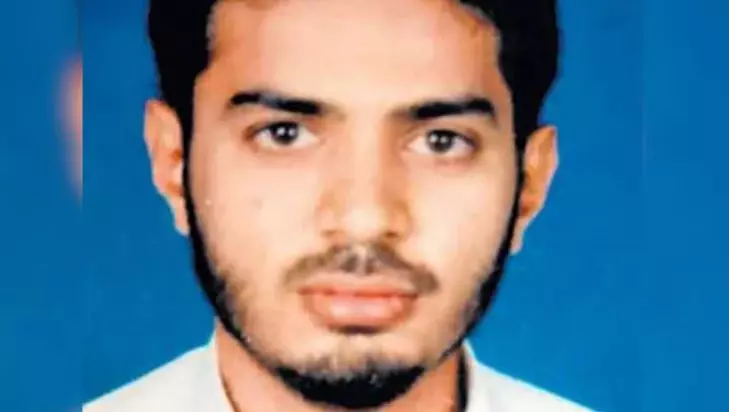Dilsukhnagar Blasts: Riyaz Bhatkal Mastermind Behind India's Deadliest Terror Attacks
Dilsukhnagar twin blast main accused Riyaz Bhatkal, founder of the Indian Mujahideen, faces 42 cases of terror attacks and extortion.

Hyderabad:Dilsukhnagar twin blast main accused Riyaz Bhatkal, founder of the Indian Mujahideen, faces 42 cases of terror attacks and extortion. He is absconding, and said to be shunting between Pakistan and Bangladesh.
Riyaz Bhatkal is one of the 18 terrorists designated by the Unoion home ministry, the others being Hizbul Mujahideen chief Syed Salahuddin, D-Company’s financier Chota Shakeel, under the amended Unlawful Activities (Prevention) Act, 2019.
Among the Dilsukhnagar blast convicts, Yasin Bhatkal alias Muhammad Ahmed Zarrar Siddibappa and Asadullah Akhtar were also wanted for the blasts at Lumbini Park, Mumbai, Delhi, Pune and Bengaluru, and were arrested on the Indo-Nepal border in August 2013.
Ajaz Sheikh, at that time residing in Pune, was arrested on September 5 at Saharanpur railway station Uttar Pradesh. Zia Ur Rahman alias Waqas was arrested on March 22, 2014, in Ajmer in Rajasthan.
Tahseen Akthar alias Hassan and a suspect in Mumbai blasts 2008, was arrested by Delhi police on Indo-Nepal border on March 24, 2014. The convicts were taken into police custody in Mumbai and the NIA later acquired their custody and charged them for the Dilsukhnagar blasts.
The NIA took up Dilsukhnagar serial blast investigation on March 14, 2013, and the accused were not granted bail. The trial was conducted video conference at the NIA court. The blast cases were registered by the Malakpet police and later transferred to the Saroornagar police and the NIA then took over the investigations.
Sources in the NIA said the terrorists had confessed that they had spent only `2,000 to assemble each of the three pressure cooker bombs that they set off in Dilsukhnagar. While two went off, one each at an eatery and a bus stop, the third bomb placed under the Dilsukhnagar footover bridge did not work due to mobile network issues. It was later defused by bomb disposal (BD) teams.
How the city suffered
October 12, 2005:
Around 7.30 pm, Bangladeshi national Dalin alias Mothtasim Billal of Harkat-Ul-Jihad-Ul-Islami (HuJI), detonated explosives outside the former task force office in Begumpet, killing himself and 45-year-old home guard A. Satyanarayana.
November 21, 2002:
Indian Mujahideen sets off blast near Saibaba Temple in Saroornagar; two persons and 20 injured. Impact limited as a truck was parked next to a scooter on which the bomb was placed.
May 18, 2007
Blast occurs during Friday prayers at Macca Masjid, results in the death of nine persons. Blast was triggered by a mobile phone. Two other devices defused. Police firing on protesters claims five lives. In April 2018, NIA court acquits all 11 accused citing lack of evidence.
August 25, 2007
100 days after Macca Masjid blasts, Indian Mujahideen (IM) activists trigger serial blasts at Gokul Chat and Lumbini Park, resulting in the death of 42 persons and injuring 54. Eleven persons died during the laser show, IED at the eatery in Koti claimed 31 lives.

